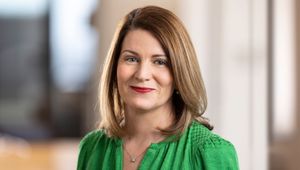
Why Inclusion in Production Is Vital to Craft

Diversity, Equity and Inclusion (DE&I) policies are under threat, especially since US president Donald Trump entered the Oval Office in January this year.
Since then, advertising giants like WPP have completely scrapped DE&I from their latest annual report. Accenture Song also ditched its diversity goals, according to an internal memo revealed by the Financial Times.
Kantar’s Inclusion Index showed that, overall, no progress has been made towards a more diverse, fair, and inclusive industry from 2021 to 2023. The study collects data every two years, so more recent statistics are to follow.
Even though the DE&I attacks of the Trump administration hold global significance, many production houses and agencies still try to create a diverse environment. For many, this is not an option, but rather a necessity. Nearly one in seven members of the global marketing industry say they would leave the industry due to a lack of diversity, equity, and inclusion, according to responses to the 2023 Global DEI Census.
Diversity is good for business and there’s data to prove it. McKinsey has been examining diversity in the workplace for several years, and it found that companies in the top quartile for racial and ethnic diversity are 30% more likely to have financial returns above their respective national industry medians, according to the Diversity Matters report.
How is the production industry responding to this need for diversity? LBB’s Aysun Bora has spoken with producers and industry experts about rethinking crew hiring, opening pathways for underrepresented talent, and making sets more accessible.
More than a checklist
Leila Bartlam is the head of global production and a content production trainer at The Industry School, a training and coaching business for the creative industries. She thinks having an inclusive crew is key to telling authentic stories. “It’s a marker of excellence and creativity. Because when crews truly reflect the world we live in, the stories they help tell are richer, braver, and more human.”
For Leila, inclusion is not about box-ticking. “It’s about widening the lens to bring in talent with diverse lived experiences, including individuals who may have faced historic barriers to entry but possess the skills to elevate the work.”
Mel Senecal Hill, the group executive producer at advertising agency Ogilvy, agrees. “Building an inclusive production crew isn’t just a checklist – it’s a commitment to creating better stories, stronger teams, and a more equitable industry. It’s about rethinking who gets to tell stories and ensuring that every voice has a seat at the table.”
Kelly Gordon, co-founder of With Not For, is disabled herself and wants everyone to have a seat at the table. “Equal production benefits everyone. It's a space where disabled talent has the opportunity to fly just like everyone else. For example, I have been a speaker at an event, and the stage wasn’t accessible. So their original proposal was to have me to the side of the stage, off the stage, and everybody else who could talk up the steps on the stage. Obviously, that is not an inclusive production.”
At the beginning… there was the hiring
Leila, head of global production, says it all starts with the hiring process and how people are supported. “This includes not only the crew, but the agency, production company and post production team.” Leila actively works on assembling a representative team and crew. “Top Tip: I’ve started to embed the Inclusion Kick off meeting in to the production life cycle. This dedicated session brings together producers, agency teams, and clients to align on one goal: assembling a representative team and crew. You can also combine it with your sustainability meeting too.“
Mel thinks companies also need to go beyond their personal contact book and partner with organisations like Women in Film, BIPOC TV & Film, LGBTQ+ collectives, and disability advocacy groups. “Actively engage with film schools and training programs that prioritise diversity. Offer paid internships and shadowing opportunities to ensure accessibility for those who can’t afford to work for free.”
Kelly, the founder of With Not For, also wants access coordinators to be mandatory. “People need to feel comfortable to start disclosing disabilities because there is a large proportion of people in production who are disabled and masking. So those need to feel comfortable and like their needs are being met.”
Filmmaker Jordan Brady advocates for taking a chance on people. At his video production boutique, True Gent, they take one shadow director from an underrepresented talent pool on every commercial shoot. “It’s that simple—and every production company and director should be doing it. They learn how the sausage is made by shadowing me on set. Being with me in a video village with clients… that’s not taught anywhere.”
But diverse perspectives are not only needed in directing. The head of production at the agency Cutwater, Doug Stivers, also believes it's essential to incorporate a diverse range of voices in editing, music composition, visual effects, and more — everyone involved in the creative process.
As a director and producer at the comedic commercial production house Dessert Before Dinner, Andy Kelemen had to overcome his habits to create a more diverse crew. “Sometimes I'm guilty of just relying on people I know versus taking a chance on someone I don't, and I need to remind myself as a producer that at one point someone took a random chance on me. By hiring intentionally, building relationships with underrepresented talent, and making sets more accessible and collaborative, we can create spaces where everyone feels empowered to contribute. That’s how we move from surface-level representation to stories that truly resonate.”
Creating Accessible Work Environments
But there is so much more to inclusivity, Leila stresses. “Inclusion doesn’t stop once names are on a call sheet. On-set environments must also be accessible, psychologically safe, and flexible. That could mean ensuring the location is wheelchair-friendly, adjusting call times for chronically ill or neurodivergent crew, using plain-language briefings and visual schedules, or offering anonymous ways for crew to share feedback.”
Mel adds that people who feel welcomed and empowered on set also perform the best. But, to achieve this, companies must actively create an accessible environment, “whether that means providing physical accommodations, addressing unconscious bias, or creating a culture of respect and collaboration.”
Diversity is not the same everywhere. Pavla Burgetova Callegari, managing director and executive producer at the production company Compass Rose, has been at the forefront of examining the matter from a local perspective and addressing global issues by supporting underrepresented communities in specific countries. “Compass Rose group operates in 14 different countries around the world, and we are well aware that diversity doesn’t look the same everywhere; in Spain, it may mean better representation for Moroccan people, while in Eastern Europe, it’s the Roma community. We focus on educating our clients about what diversity means in different markets and creating real learning opportunities for these communities.”
Success through diversity and inclusion
Mel says: “Diversity behind the lens isn’t just the right thing to do – it’s a creative and commercial game-changer.” ‘Sinners’ has been a huge box office success, bringing in more than $360 million, “in part attributed to its inclusive hiring practices, demonstrates that authentic storytelling driven by diverse talent can be incredibly lucrative.”
The same can be said for ‘Crazy Rich Asians’. With a global gross of $239 million against a $30 million budget, the film has proven successful. Mel thinks, “These successes show that inclusivity isn’t just representation – it’s a necessity for compelling, impactful narratives. When you bring together people with different lived experiences, you unlock fresh perspectives, innovative problem-solving, and a collaborative energy that elevates the entire production.”















